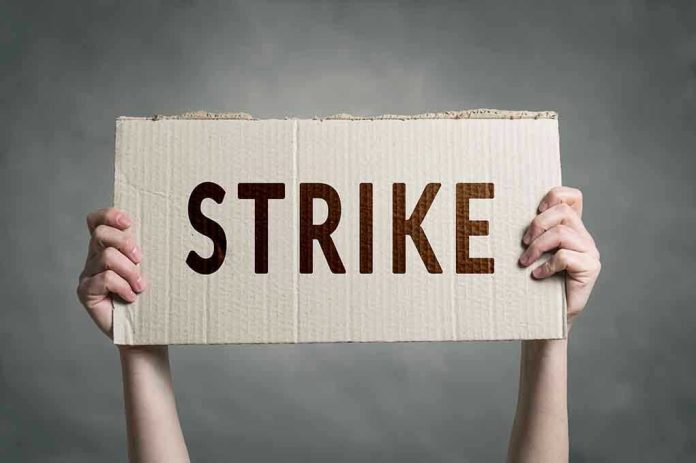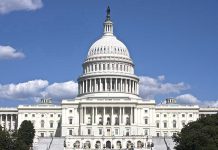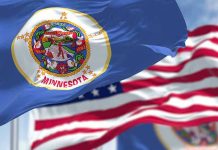
Union presidents in France and the United States are walking a tightrope: controllers face the stress of working without pay, yet leaders insist a strike won’t happen—at least not yet—leaving millions of travelers and businesses bracing for what comes next.
Story Snapshot
- French and U.S. air traffic controllers endure unpaid shifts and mounting pressures as labor unrest spreads.
- Union leaders publicly downplay strike risks due to legal constraints and active negotiations.
- French unions leverage strike threats for bargaining, while U.S. unions rely on public opinion and indirect actions.
- Ongoing disruptions expose vulnerabilities in air travel safety, reliability, and political stability.
Union Leadership Balances Worker Anger and Public Anxiety
French and American air traffic controller unions find themselves in a delicate position: representing workers who are stretched thin and unpaid, while assuring the public that air traffic won’t grind to a halt. French unions, including UNSA-ICNA and SNCTA, filed strike notices earlier this year, citing toxic management and chronic understaffing. Their American counterparts at NATCA, bound by laws prohibiting strikes, warn of system fragility and urge urgent reforms rather than immediate walkouts.
Legal boundaries define the landscape. U.S. controllers still remember the Reagan-era PATCO firings in 1981, which made strikes illegal and left slowdowns and sick-outs as their only tools. French unions, meanwhile, have a long tradition of calling strikes during peak travel periods, wielding their leverage with precision. In both countries, union presidents speak of negotiation, not confrontation, while workers face disrupted schedules and mounting frustration.
Government Shutdowns and Peak Travel Strikes Disrupt Millions
July 2025 saw French controllers walk out, leading to the cancellation of thousands of flights and affecting over a million passengers at the height of summer travel. A larger strike was planned for September, only to be postponed after partial agreements, though many underlying issues remain unresolved. Across the Atlantic, air traffic controllers worked without pay during an October government shutdown, causing delays and raising urgent safety concerns. In both nations, these disruptions ripple across the economy, impacting airlines, tourism, and the daily lives of travelers.
Political leaders and regulators feel the pressure. France’s Directorate General of Civil Aviation and the Ministry of Transport face calls to modernize and address staffing shortages, with unions demanding more than just incremental change. In the U.S., the FAA and Department of Transportation scramble to keep the system running while Congress wrangles over budgets, leaving controllers in limbo. Both governments are keenly aware that public opinion can turn swiftly; prolonged delays and flight cancellations fuel demands for decisive action.
The Intersection of Labor Rights, Safety, and Common Sense
Controllers play a critical role in aviation safety and efficiency. Chronic understaffing and delayed modernization—especially in France—compound the impact of strikes. In the U.S., the shutdown exposes vulnerabilities, with NATCA warning of risks to both morale and public safety. Industry experts and economists agree: recurring labor actions and political crises erode trust in the reliability of air travel, threaten economic stability, and pressure leaders to deliver real reforms.
Labor scholars highlight a key contrast: French unions use strikes as a primary bargaining chip, while American unions, constrained by law, must resort to indirect action and public messaging. Some analysts argue that such actions are necessary to force overdue reforms, while others caution that public patience is thin and safety must remain paramount. The power dynamics are clear—unions hold the leverage to disrupt, governments hold the authority to regulate, and the public holds the ultimate sway through pressure and demand.
Uncertain Future: Will Negotiations Prevent New Disruptions?
Negotiations are ongoing in both France and the United States, but uncertainty persists. French unions have postponed strikes for now, yet warn that unresolved issues could prompt renewed action. In the U.S., controllers remain at work, unpaid and wary, as the shutdown continues. The risk of further disruptions looms, with each side weighing the consequences of escalation versus compromise. Airlines, passengers, and businesses remain on edge, watching for signs that the fragile balance could tip.
As union presidents walk the line between worker advocacy and public assurance, the stakes are clear: the reliability and safety of global air travel depend not just on technical expertise, but on effective negotiation, sound policy, and common sense leadership. The next move may come from any corner—government, union, or the traveling public itself.
Sources:
EntreVue: French air traffic controller strike background and demands
Travel France Bucket List: Strike dates, impacts, and union actions
Axios: U.S. shutdown, controller pay, and system impacts
NDTV: France air traffic controllers’ strike












